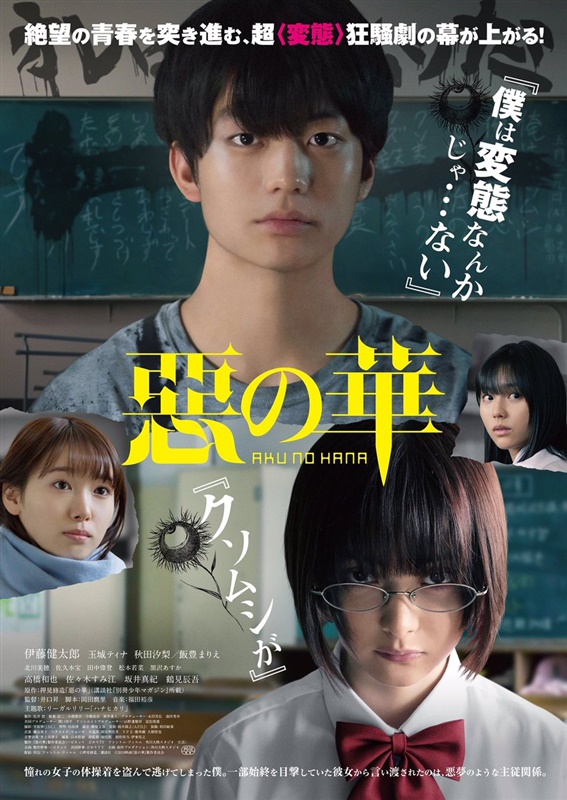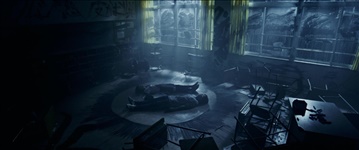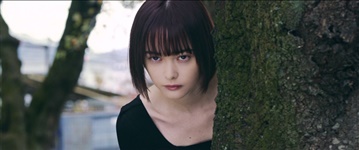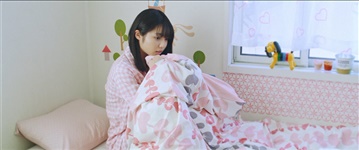The Flowers of Evil (2019)

Catching up on my boy Noboru Iguchi's work after the short-lived Sushi Typhoon collapsed in 2012-ish, this was not at all what I expected to be watching tonight.
The Flowers Of Evil tells the story of a teenage boy who fancies himself the deep, sensitive type because he reads the poems of Charles Baudelaire - from which the film also gets its name. To his own surprise he becomes involved with the class queen - beautiful and high-achieving Nanako (Shiori Akita), but then also becomes entangled with the class freak - the awkward, antisocial Sawa (Tina Tamashiro). Caught between light and dark, he is forced to confront his own true nature.
It's a far cry from the absurdist over-the-top violence/fun of films like The Machine Girl and Robogeisha. It's a far more literary film, a coming of age tale closer in spirit and style to Sion Sono or Sabu when they are in dark mode. It's a big swing for Iguchi, a completely different type of film to what he is known for. No toilet humour, no gross-out gore... little in the way of humour at all really, it is a Serious Film.
At first I thought it was a miss, kind of pretentious, but as it went on I found myself getting drawn in. It joins a long tradition in Japanese cinema of depicting adolescence as a brutal, traumatic time (the film cheekily opens with the dedication "Dedicated to all the boys and girls who are now suffering, or have suffered from puberty") and in giving centre stage to some profoundly damaged characters. It's reminiscent of Sono's Himizu in some ways, but probably closer to Sabu's Dead Run or My Blood And Bones in a Flowing Galaxy.
At first the characters' dysfunction seems unnecessary and perhaps unearned, but over the course of the film they become more fleshed out and begin to make sense, or are at least nonsensical in a coherent way. It ends up being quite an affecting experience, even powerful, and disturbing on a more authentic level.
It's a surprisingly beautiful film too, comparatively restrained but nicely staged and shot, with a good soundtrack. Thematically and technically this is a much more mature work than Noboru Iguchi had given us any reason to suspect he was capable of (unless there are more surprises lurking in the few films I still haven't seen, but it looks unlikely).
It is still festival bait in some ways, but targeting the arthouse crowd rather than the midnight movie slot an Iguchi film would usually be scheduled in. I don't know if it was successful in finding a new audience for his films or more commercial success - I've never seen much talk about it, so probably not - but hopefully it showed potential investors that there is more to this director than they might previously have suspected.
Cast
Crew
| Director | |
|---|---|
| Writer | |
| Editor | |
| Cinematographer | |
| Soundtrack |
Also known as
- Aku no Hana





